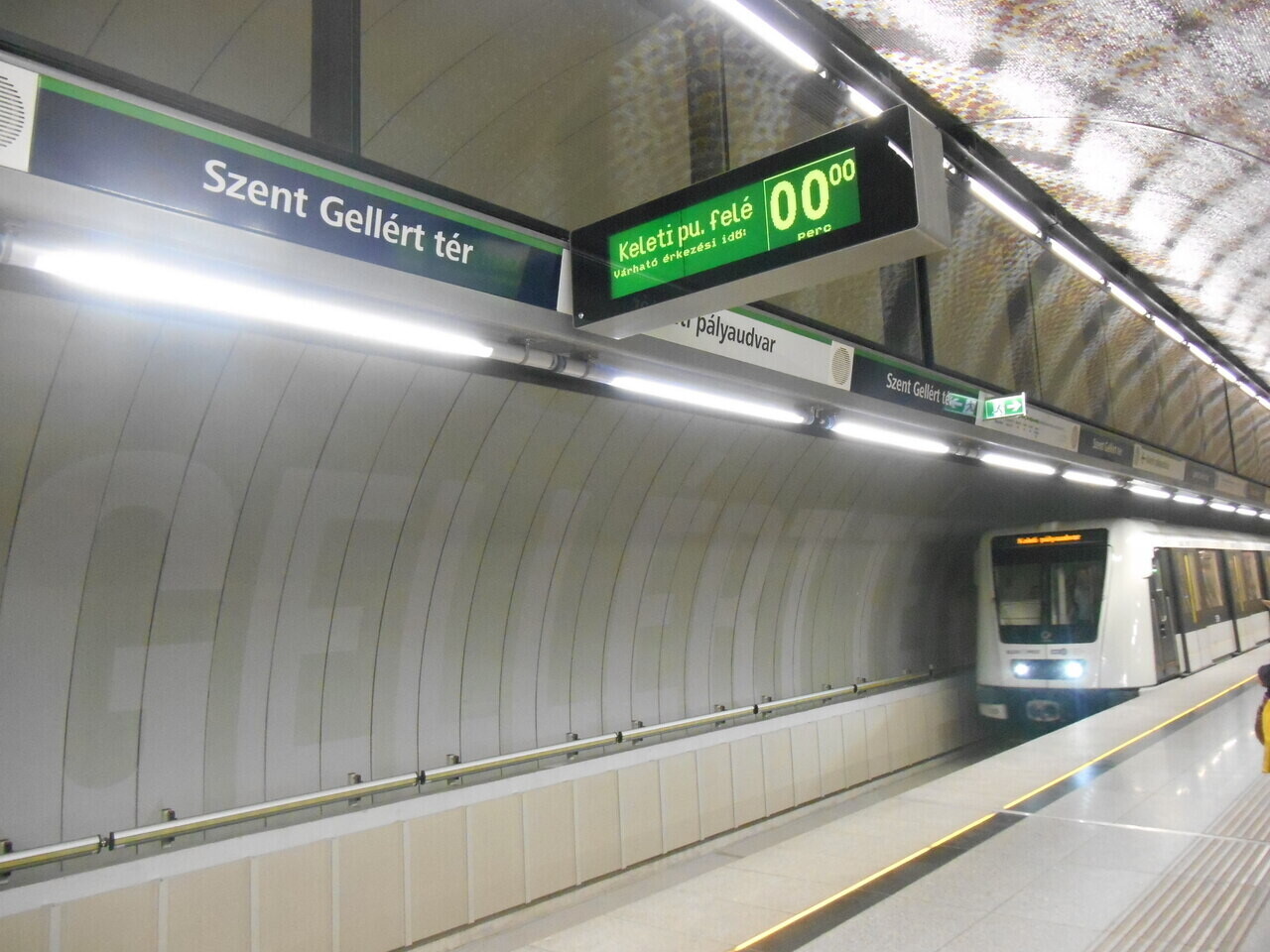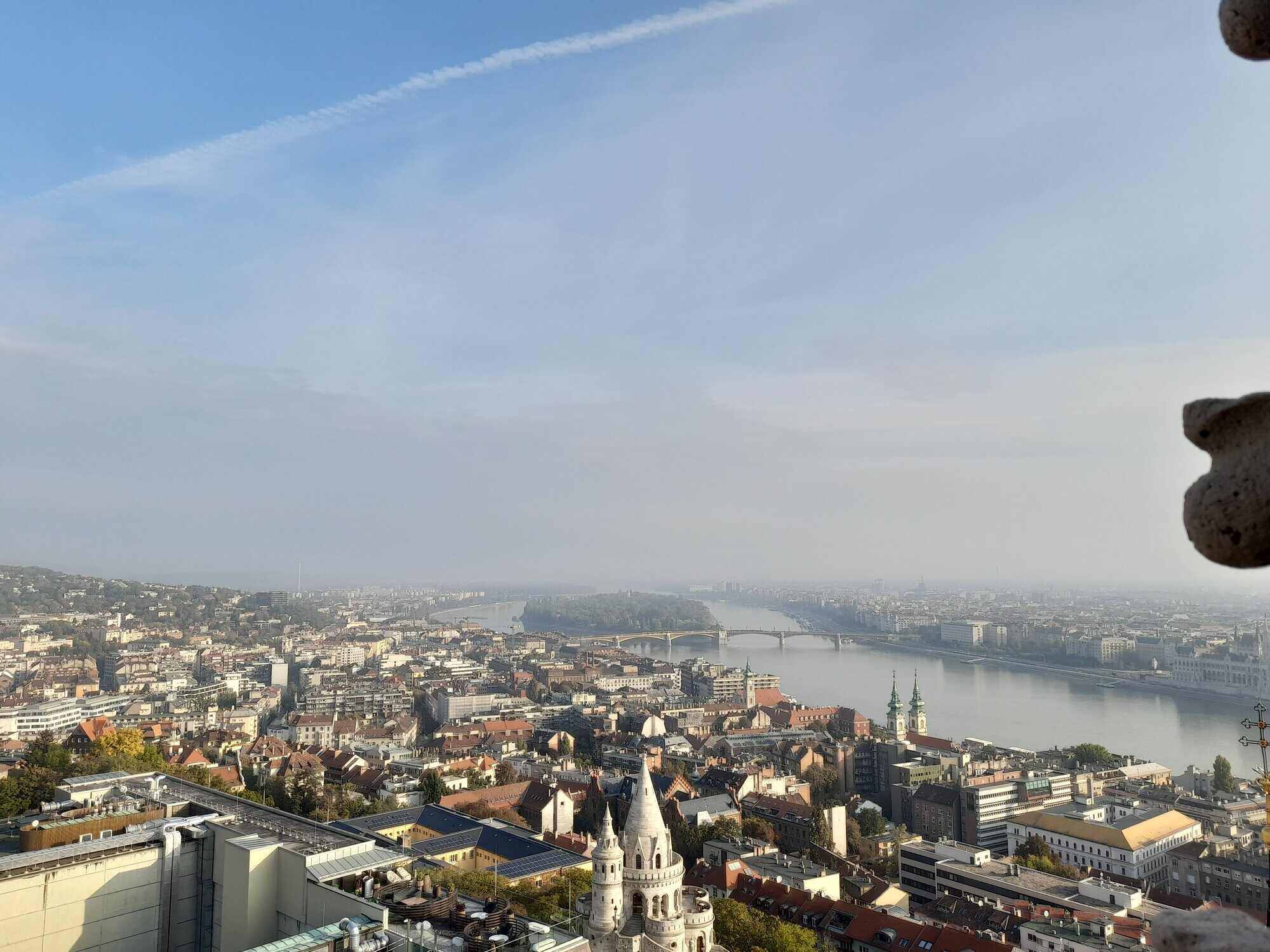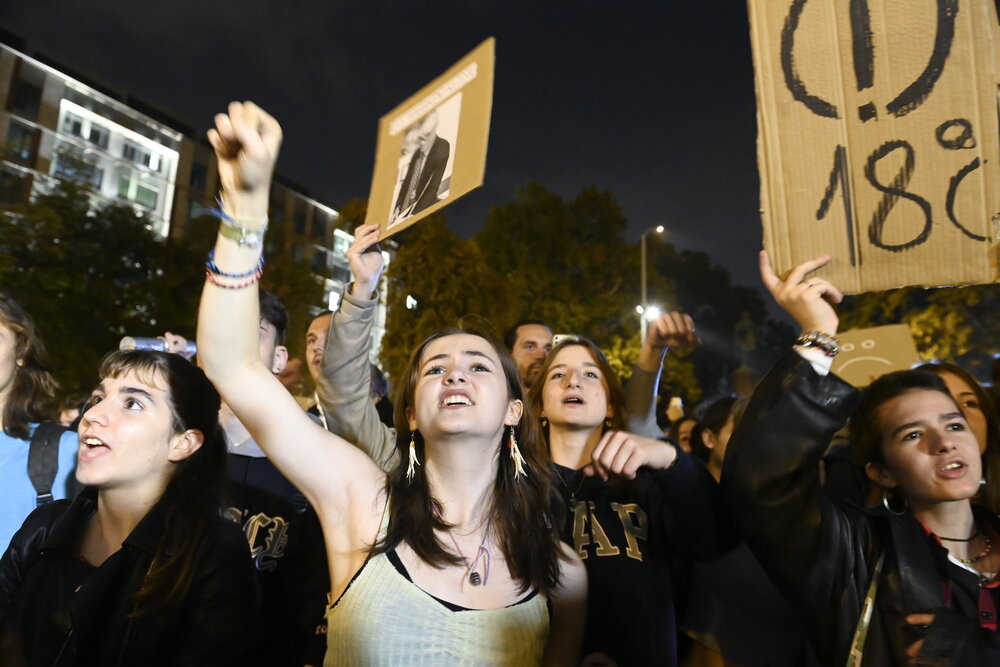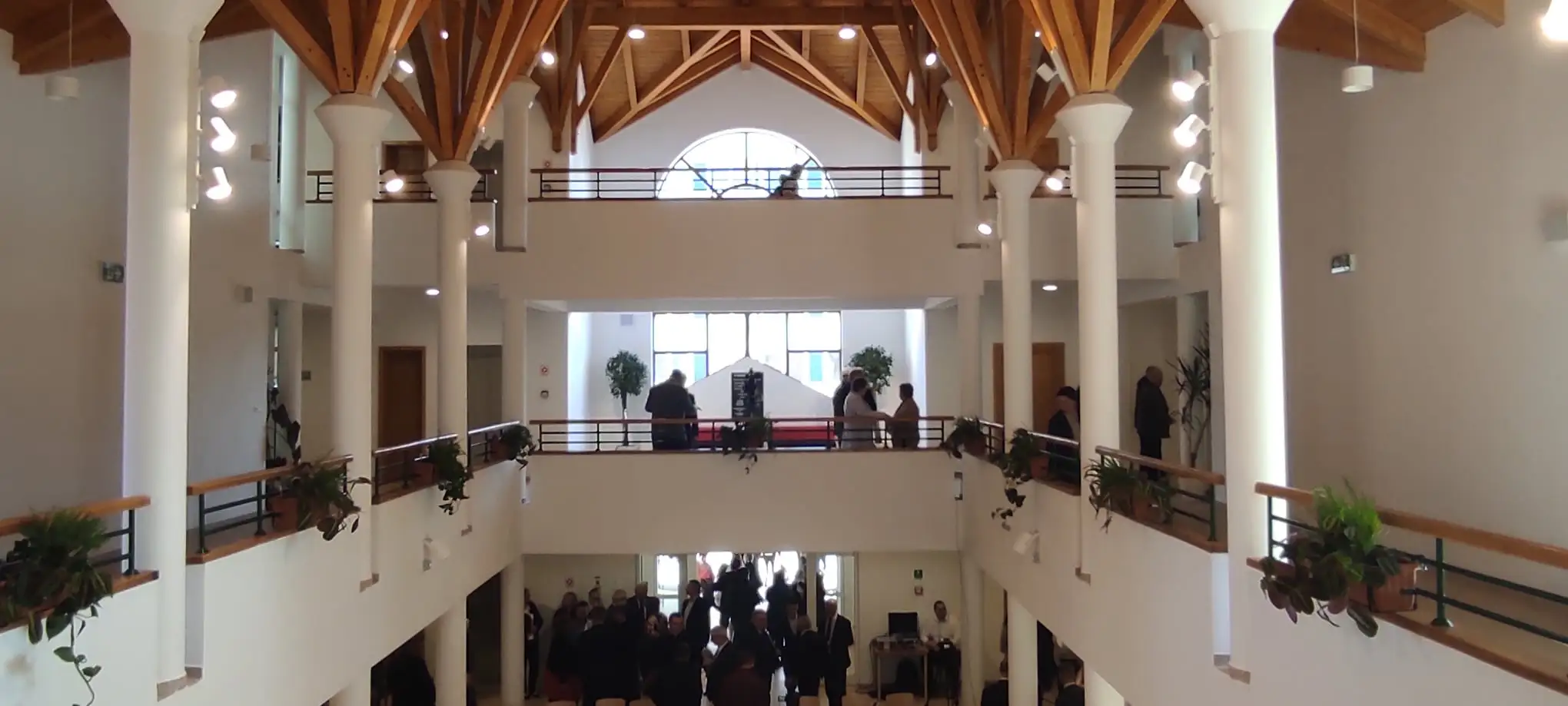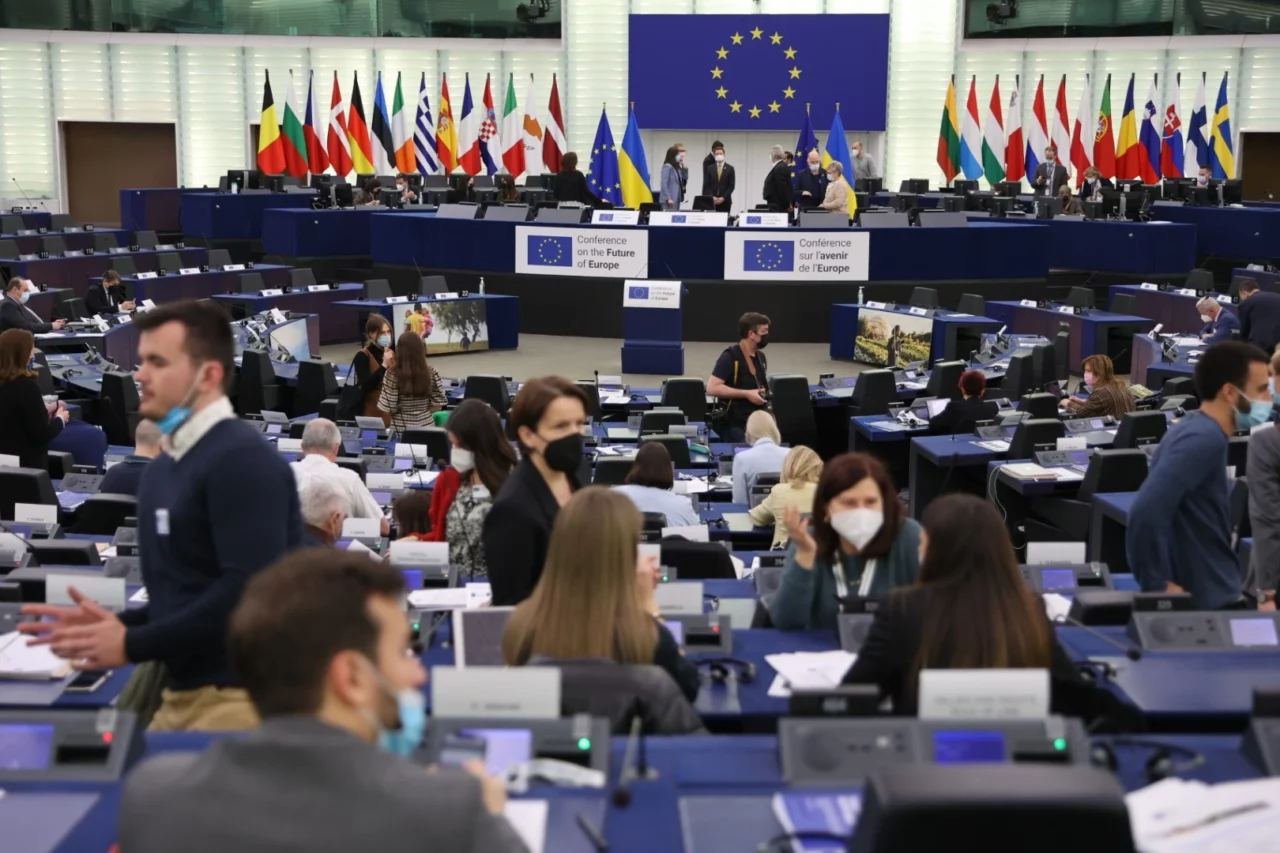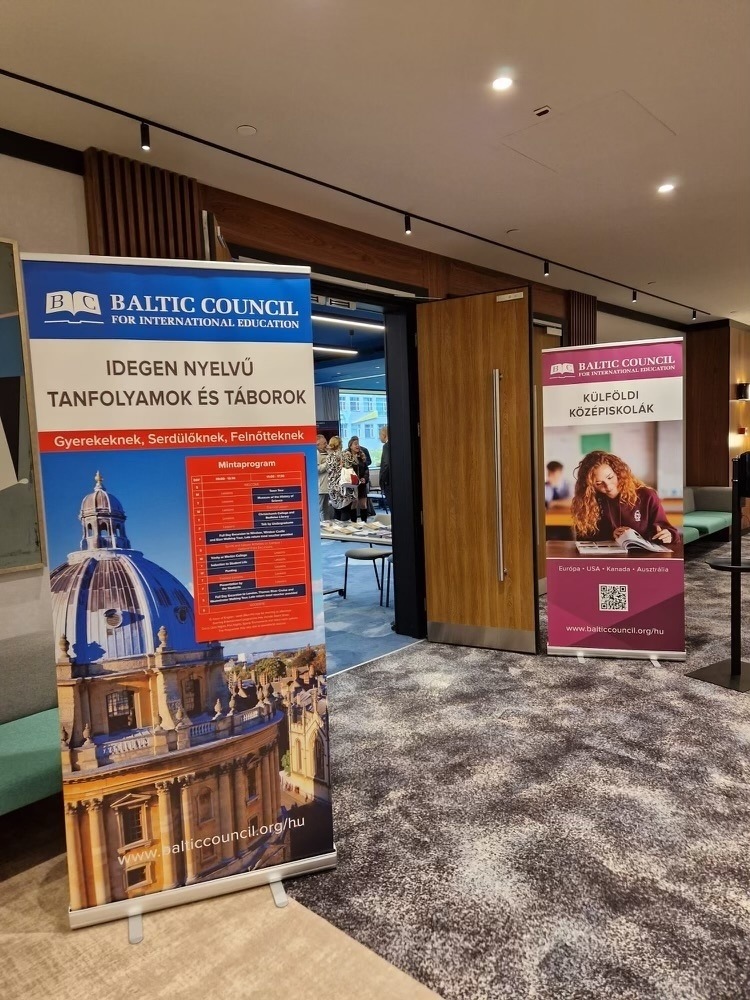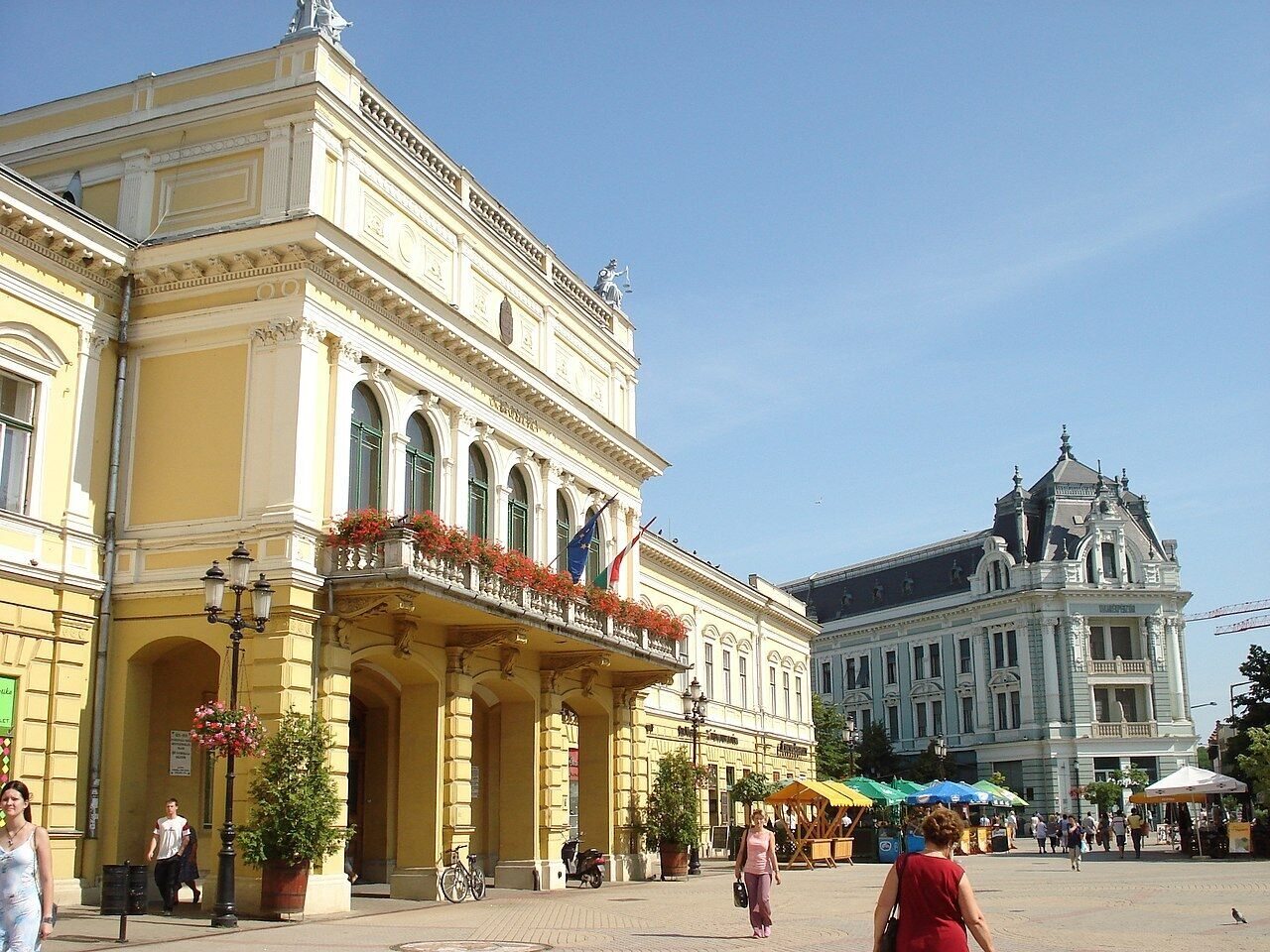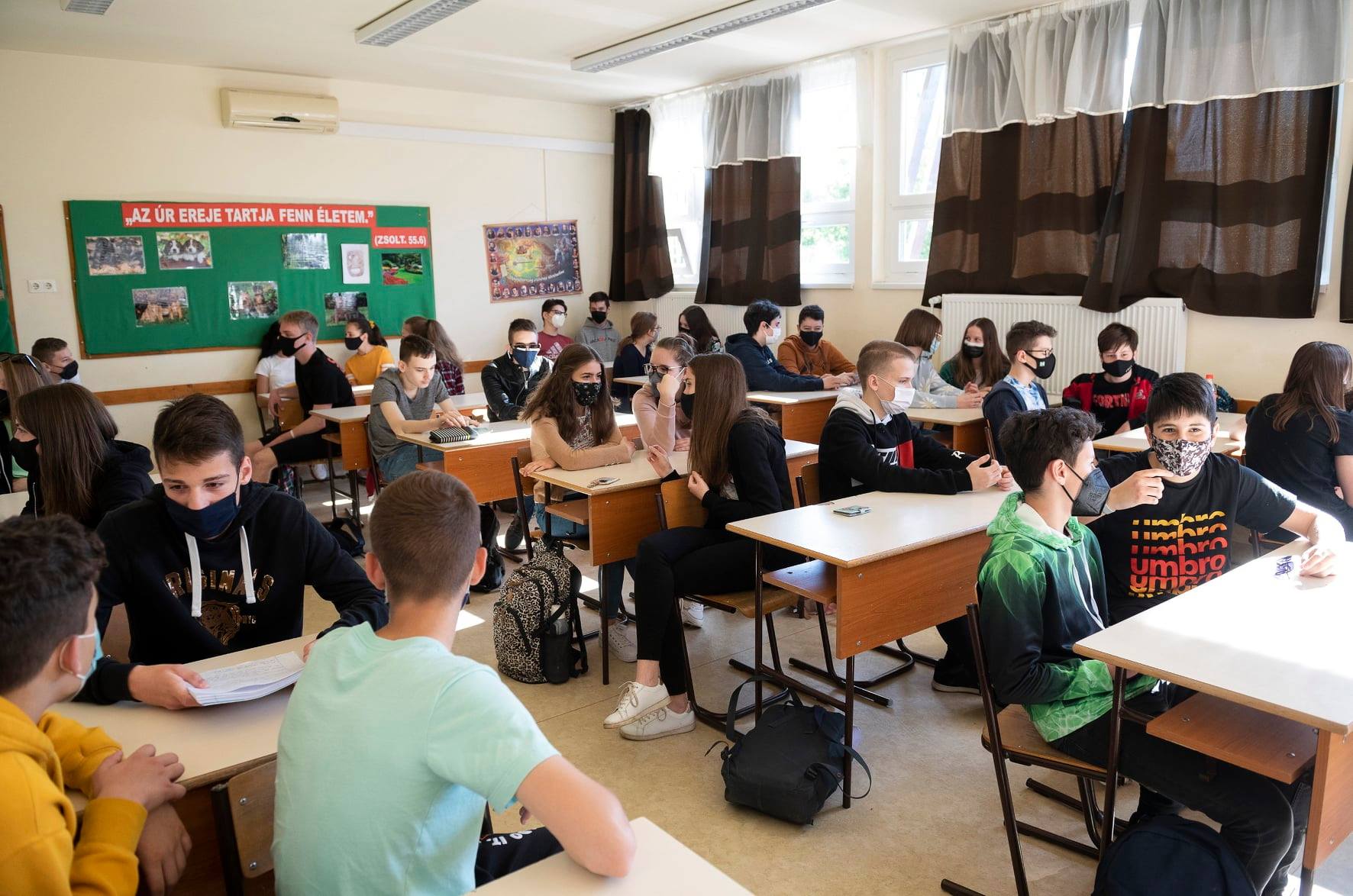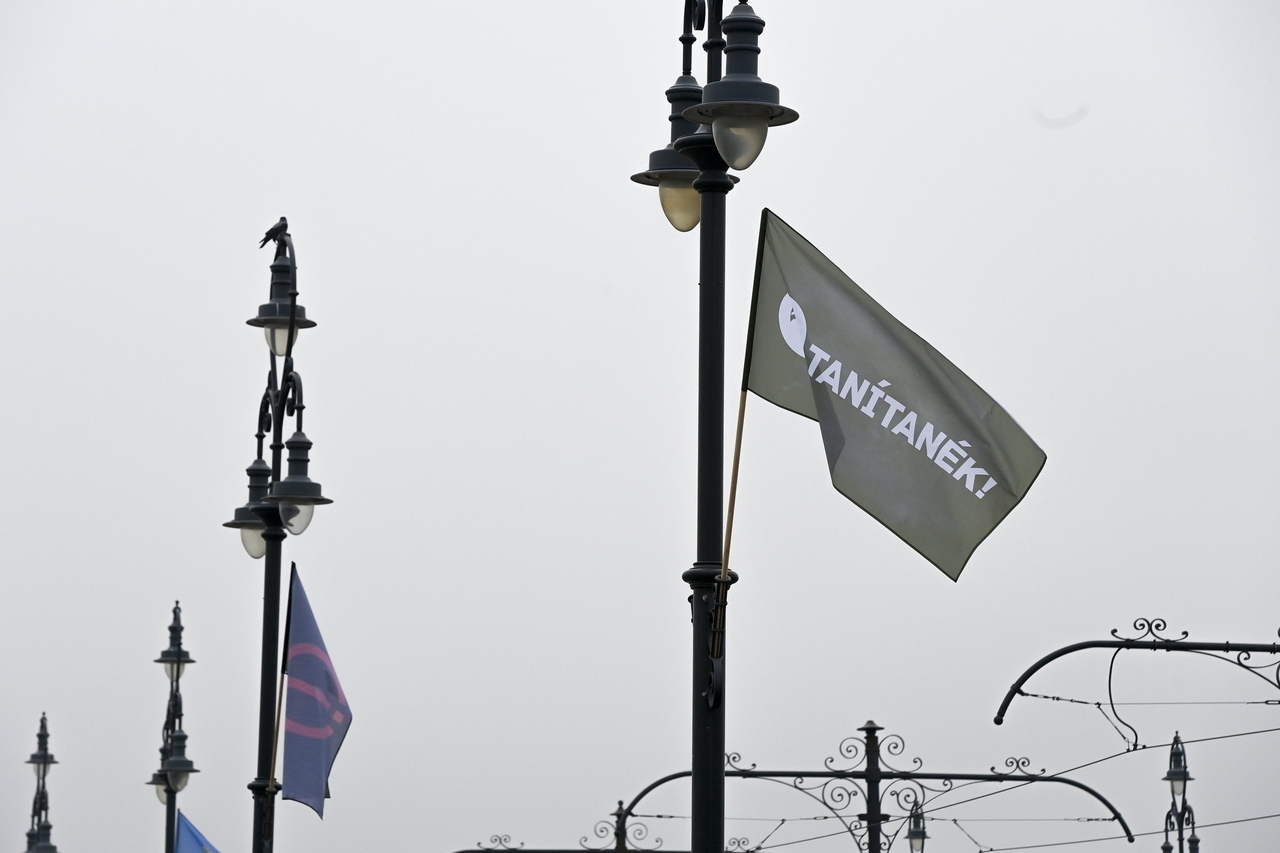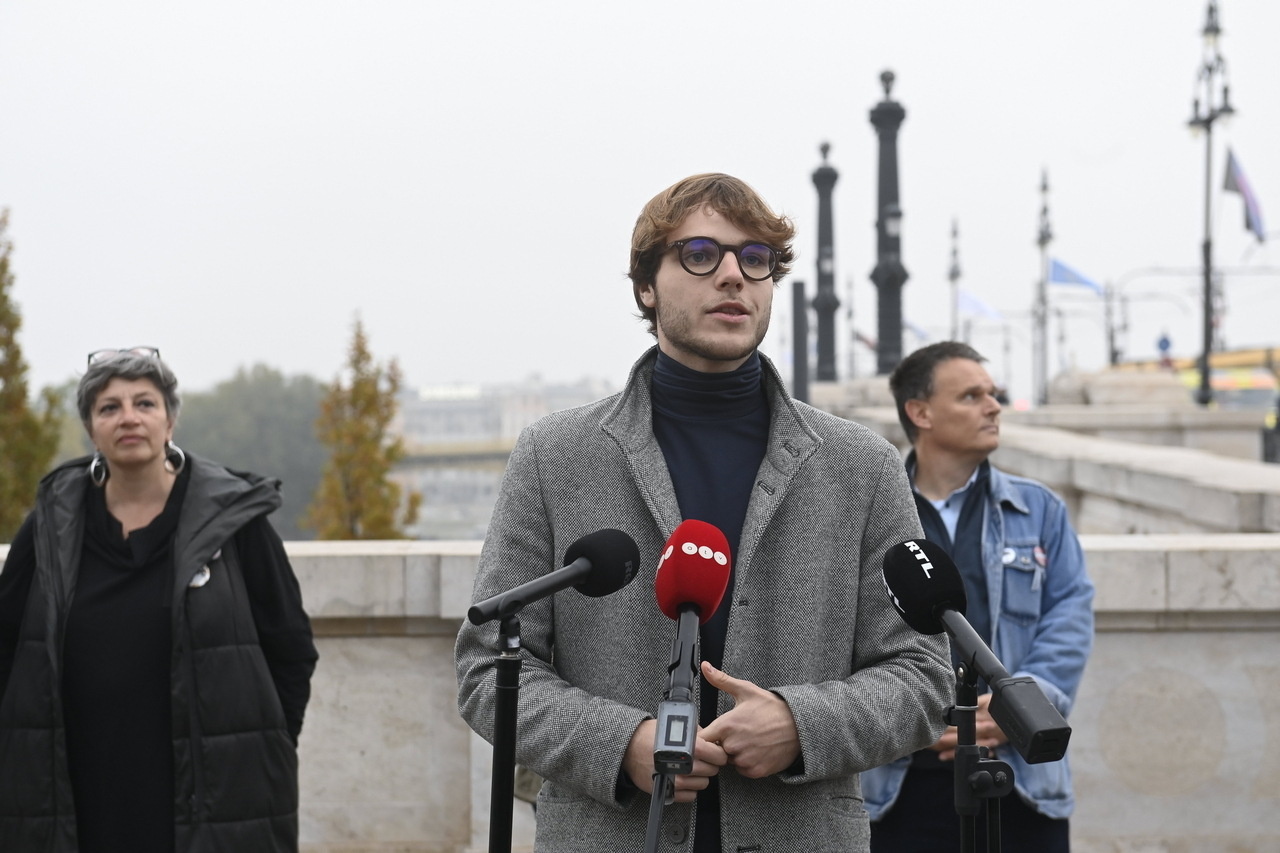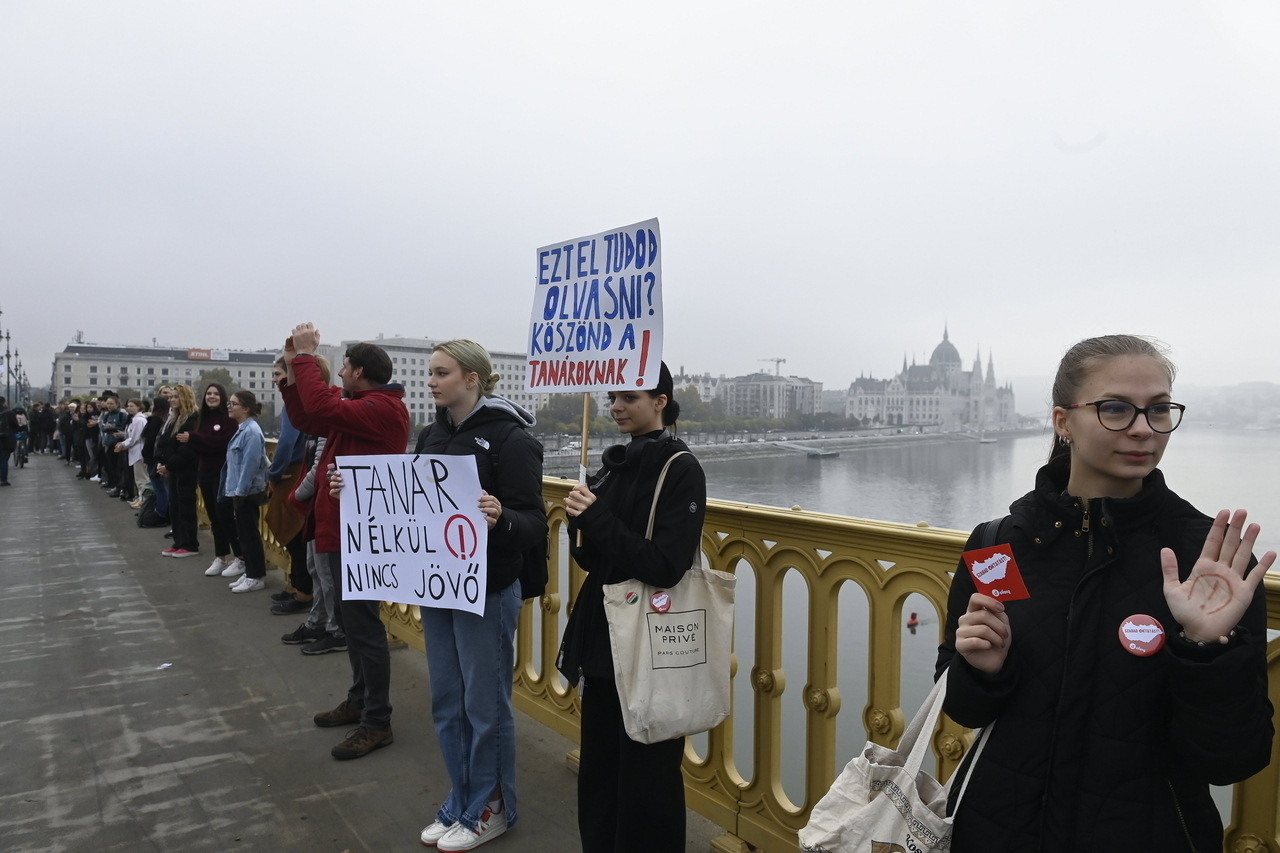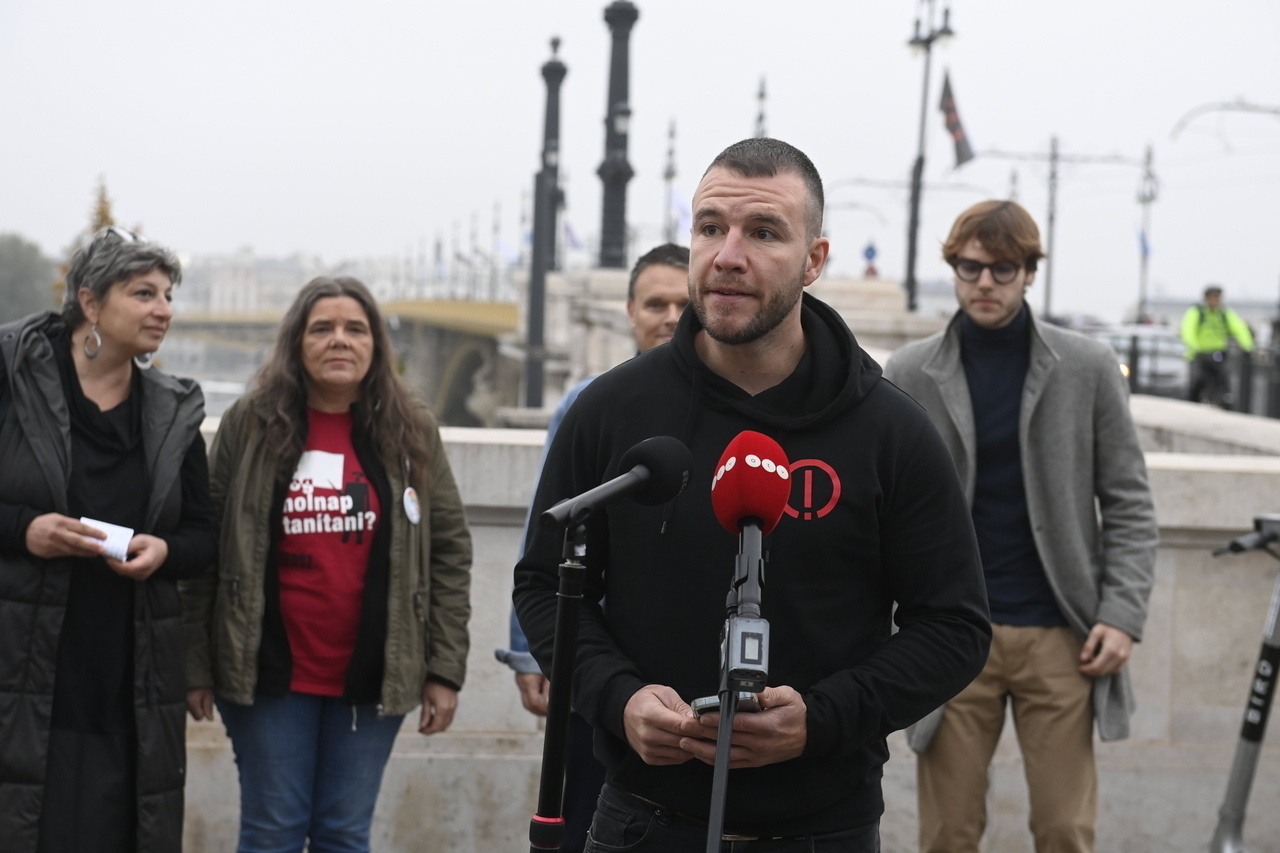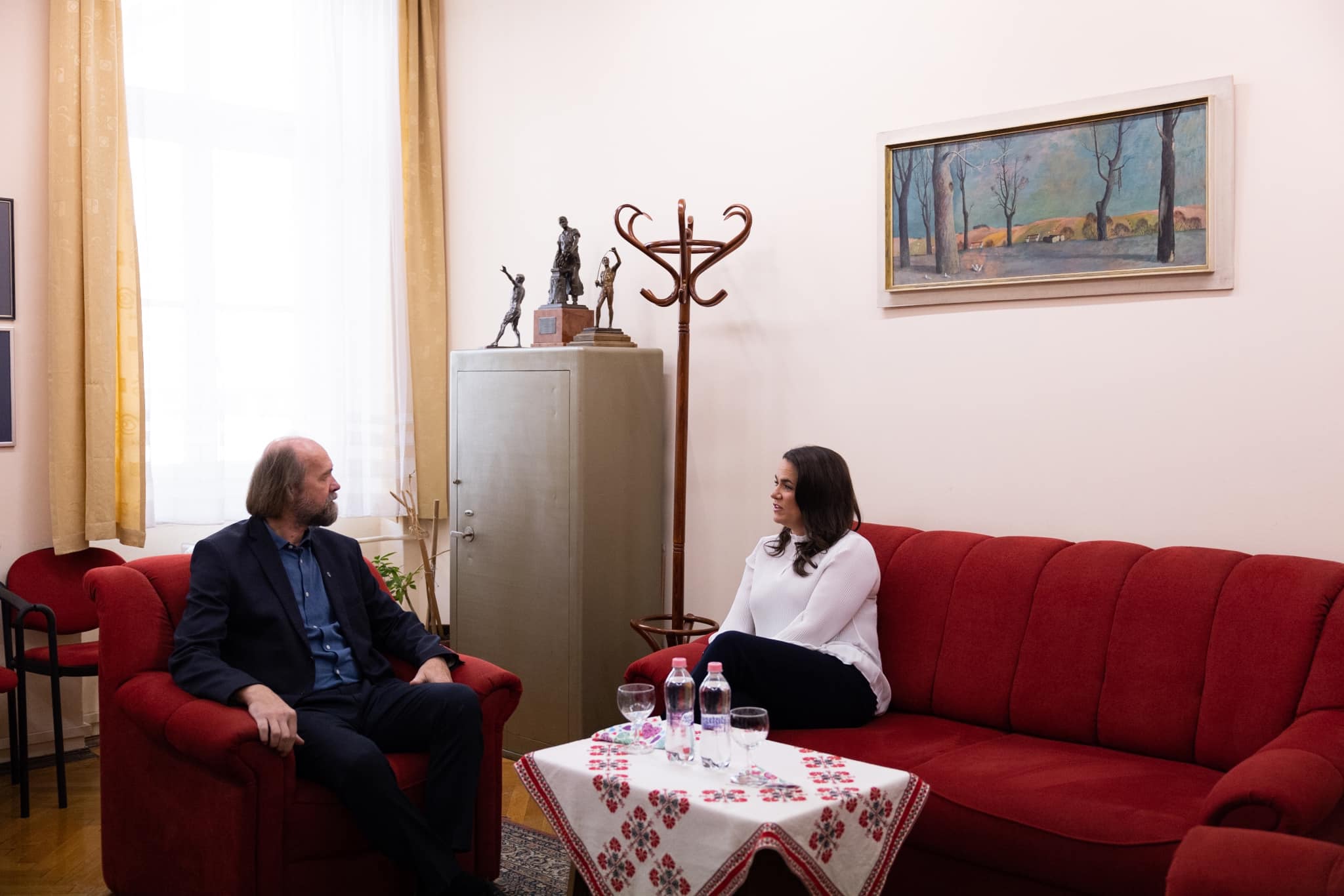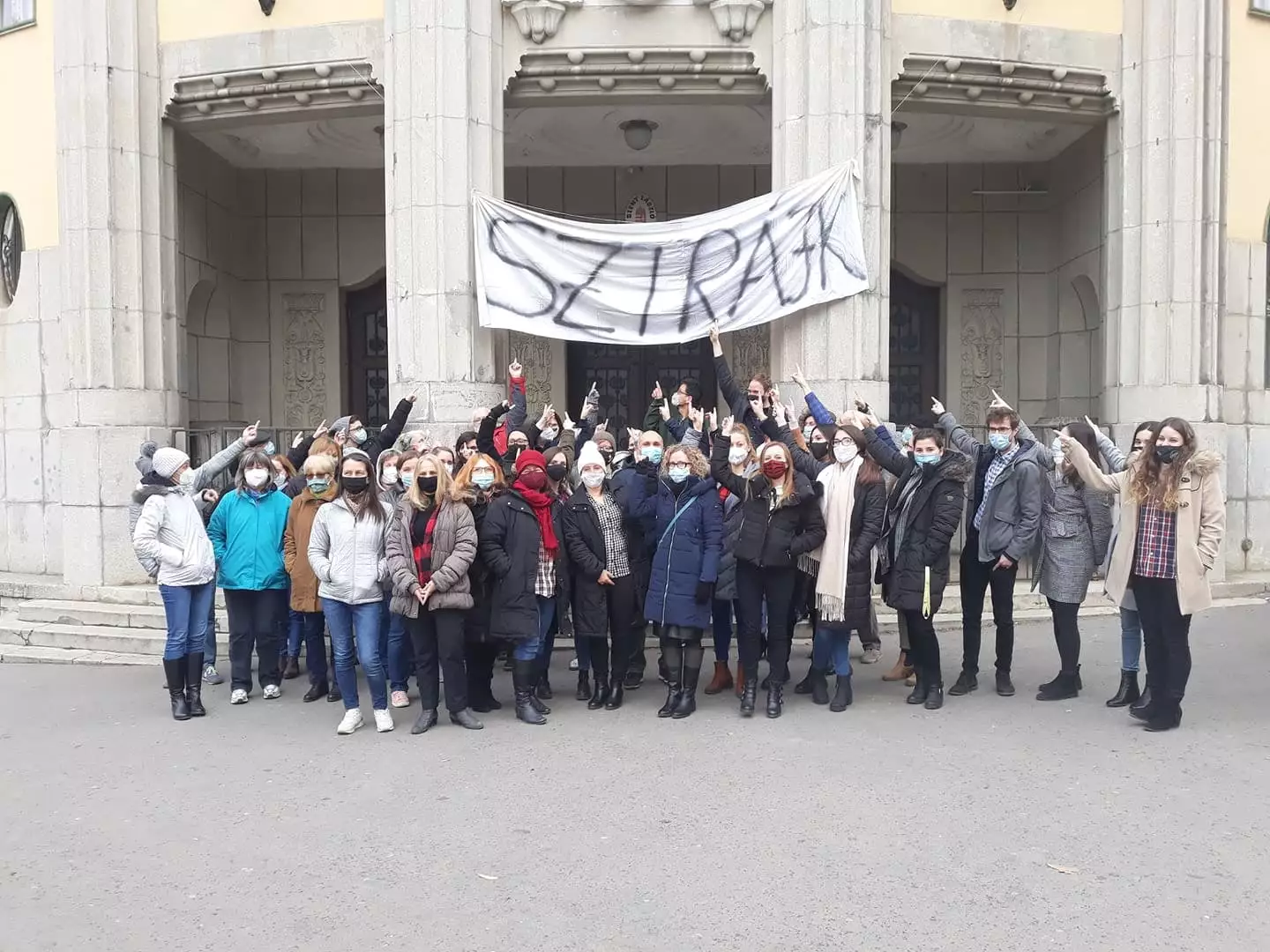A delegation of the European Parliament’s Committee on Culture and Education (CULT) has paid a visit to the National Media and Communications Authority (NMHH) and held talks with András Koltay, its president, the communications directorate of the authority told MTI on Friday.
Koltay briefed the delegation led by Sabine Verheyen about the Hungarian media market, media pluralism and the application of EU laws in Hungary, NMHH said in a statement. Koltay also gave the delegation an outline of the authority’s tasks and operation concerning the broadcast system, frequency management and supervision of postal services.
The NMHH president told committee members that the authority operates as an independent organisation and carries out its supervisory and regulatory duties in line with EU laws and regulations.
Asked about the local media market and news consumption, Koltay said that it was diverse with thousands of media outlets operating in Hungary. He described local news consumption also as diverse, noting availability of numerous sources of information. The situation of media pluralism in Hungary and the Hungarian position in connection with the planned European Media Freedom Act (EMFA) and digital services were also discussed at the meeting.
“Continued dialogue”
The delegation of the European Parliament’s committee called for continued dialogue with Hungary “for better mutual understanding and to strengthen European values”, at a press conference held at the end of a three-day visit to Hungary.
Sabine Verheyen, an MEP sitting in the European People’s Party (EPP), said they had held “fruitful, constructive, sometimes controversial” discussions. They will assess the experiences in Brussels and will draft a report in an attempt to “consider the complex situation and to avoid jumping to conclusions”, Verheyen said.
Verheyen said the committee objected to the “division of Hungarian media into pro-government and opposition outlets”. Media should be politically and financially independent to be able to function as a check and balance, she said.
The media is indispensable for a functional democracy, and so its independence must be guaranteed, Verheyen said. This means that all outlets have the right to praise or criticise the government or the opposition without being branded anti-government or pro-opposition, she added.
The delegation also looked into the situation of public education in Hungary, Verheyen said. She said she discussed the much-critiqued Hungarian education system with Regional Development Minister Tibor Navracsics, who “has contributed much to European education policy” as a European Commissioner for Education, Culture, Youth and Sports between 2014 and 2019.
The visit focused on “culture and media policy, artistic and academic freedom” in Hungary, according to an EP statement issued last week. The delegation met Culture and Innovation Minister János Csák, Regional Development Minister Tibor Navracsics, and Budapest deputy mayor Anett Bősz, besides NGOs and media outlets. “We want to discuss with all sides the recent developments in education, cultural and media policies in Hungary – in the light of some concerns brought to the attention of our members by Hungary’s academic and artistic community and civil society,” Verheyen said before the visit.
Fidesz MEP: committee ‘arrived with preconceptions’
Since the delegation of the European Parliament’s CULT arrived in Budapest with preconceptions, “the consequences they will come to in Brussels next week are predictable”, a Fidesz MEP said after the visit wrapped up on Friday in Budapest.
“The programme was clearly skewed,” Andrea Bocskor told MTI.
Bocskor insisted certain panels leaned on left-liberal players, such as the discussion with FreeSzfe, the NGO of teachers and students who left the University of Theatre and Film Arts after its government-led reform. The current leadership of the university was not invited, she noted. “They tried to paint the picture that the reform was negative in all aspects, the other side had no chance of talking about its advantages for the university,” she said.
The head of the mission headed off the discussion with the presumption that academic freedom was under duress in Hungary, and asked the teachers whether they were “afraid of photos being taken” of the talks, Bocskor said. Bulgarian MEP Andrey Slabakov called the meeting “important and useful”, and noted it had been scheduled two years ago, before Covid-related lockdowns.
Slabakov noted that education was an area in the hands of sovereign states, and the EU was not entitled to make categorical decisions. “In that case, the European Union would become the European Soviet Union…” he said. He said he stood on the side of the Europe of sovereign states, the “basic tenet of the union”. “Free speech is not the problem, more when it is used badly,” he insisted, adding that “a dearth of independent media” was problematic throughout the EU.
Read alsoHungarian rural restaurant awarded two Michelin stars! – PHOTOS



